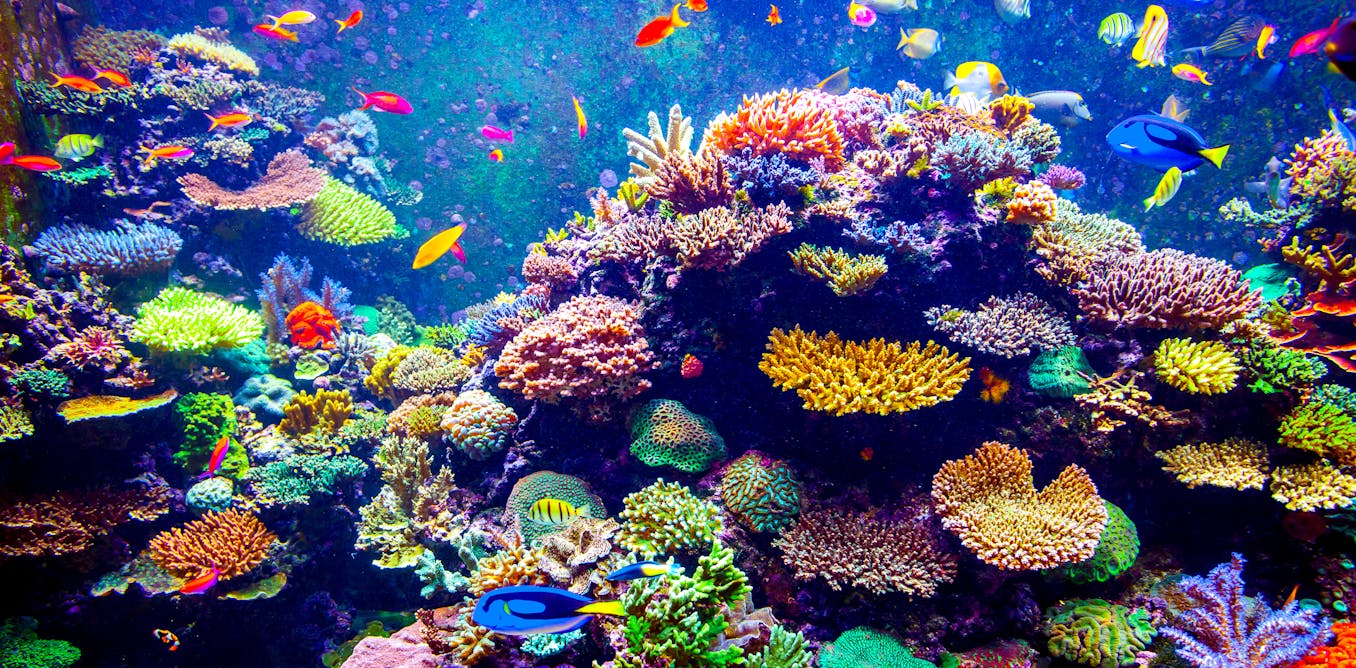The Future of Coral Reefs
Coral reefs are one of nature's most beautiful creations: they are fascinating structures with almost alien features that glow with all the colors of the rainbow. Not only are they mind-blowing, but they are home to complex ecosystems that are as diverse as tropical rainforests. Because they grow on coasts, coral reefs also protect the land from waves and erosion and help humans find food. It's safe to say that coral reefs are a vastly important part of not only marine environments, but land environments as well.
Unfortunately, climate change has put these breathtaking ecosystems in danger. Over the last 30 years, about a third of the coral reefs in our oceans have been lost. This is mainly due to increases in ocean temperatures as they require very specific conditions to survive and cannot adapt fast enough as climate change causes these temperatures to rise. Coral reefs mainly disappear as a result of bleaching, which is a response by the coral to expel all of its colorful algae that begin to produce harmful toxins when temperatures rise. Without their symbionts, the corals have no food source and often end up dying.
In order to see how coral reefs will fare in the future, scientists Meissner, Lippmann, and Gupta developed a study to see how ocean temperature will change over the next 400 years. They do this through the lens of hypothetical models of humanity proposed by the Intergovernmental Panel on Climate Change (IPCC), called representative concentration pathways. One model, RCP 3PD, portrays a future for humanity with minimal greenhouse gas emissions. RCP 8.5 is the opposite of this and models a future where humanity stays on its current course.
As part of their study, Meissner et al. model temperature changes and coral bleaching from now to 2400. What they found is frightening and shows us just how important the mitigation of climate change is.
In this figure the effects of global warming on coral are evident. There is no doubt that if we do not do anything, we will lose some of the world's most incredible ecosystems. This will not only have negative implications for coral, but for ocean biodiversity and humanity as well.
The future for coral reefs may not be bright, but this study shows us that if we do start to change our ways, humanity can turn this situation around. This is representative of other climate change issues in that things are going to be much worse if nothing is done. From excessive human waste being dumped all around the world to the mass deforestation of the Amazon and other forests, humanity causes countless environmental issues that endanger wildlife and earth's natural processes.
This study is helpful in showing us the impact of human development, and I wonder what other models can be created to widen the breadth of this way of looking at the effects of climate change. How do increased greenhouse gasses impact weather? How about the spread and severity of disease? These are the questions that need to be asked if we are to gain a better understanding of climate change.
References:
Meissner, K.J., Lippmann, T. & Sen Gupta, A. Large-scale stress factors affecting coral reefs: open ocean sea surface temperature and surface seawater aragonite saturation over the next 400 years. Coral Reefs 31, 309–319 (2012). https://doi.org/10.1007/s00338-011-0866-8




This blog very concisely addresses the importance of coral reefs, threats to coral reefs, and how these two ideas need to be addressed by humanity to preserve a positive future for the environment. I like the figure with the comparison of the world in the presence of green house gasses and without green house gasses. While the blog acknowledges the doom and gloom possibility of the future status of coral reefs, it maintains an element of hopefulness by displaying the success that is possible if we make changes in society to lower our carbon footprint.
ReplyDeleteThis post accurately explained what is happening to our coral reefs while also giving the reader hope for the future. The photos were very helpful in showing the reader visually what's happening to these treasured ecosystems. I appreciated the way this post took a complex subject and simplified it for easy reading.
ReplyDeleteThis is such an important and relevant topic. Coral reef bleaching is definitely an important impact of climate change that must be monitored. Furthermore, I think it's important to consider the ecosystem impacts of coral reef loss. Without the presence of that habitat, not only is the coral itself lost, but so are all of the animals that occupy that space normally. It’s definitely pretty terrifying to see the severity of the RCP model if we don’t take action. But on the other hand it's motivation for us to make changes now!
ReplyDeleteThis is such an important issue for me, and I really wish more action can be taken to prevent coral bleaching. As a kid, snorkeling the reefs in Florida and seeing all the sea life within was one of my favorite pastimes. I really hope if we take action now, future generations can enjoy the same experience.
ReplyDeleteComment from Crystal:
ReplyDeleteThis is such an important topic to talk about. I feel as though most people are unaware of how bad the current situation is for coral reefs. I think it’s really impressive that scientists are able to conduct studies that can predict hundreds of years in advance how the ocean temperature will change. It’s important that we recognize how immediate and serious the threat of climate change is and take action accordingly.